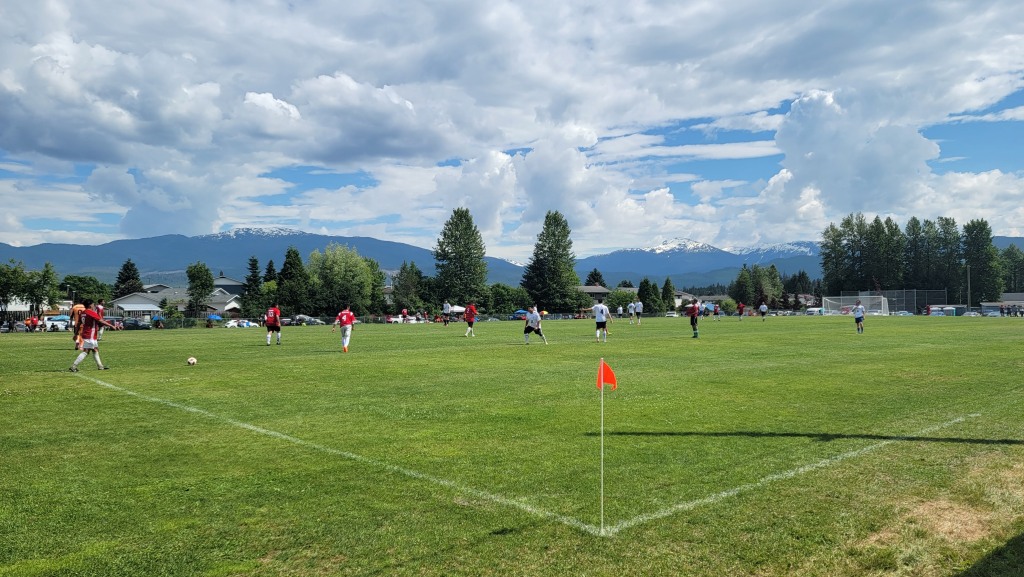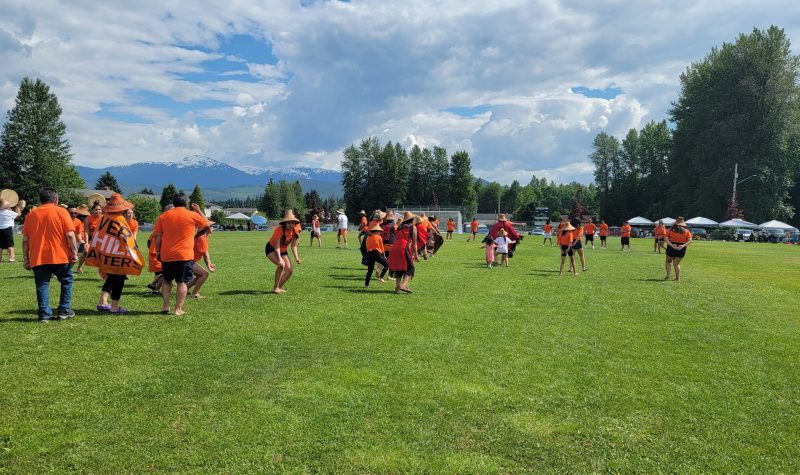The second annual "Every Child Matters Memorial Soccer Tournament" was held in Kitimat earlier this month to increase awareness for the tragic discovery of thousands of unmarked graves at former residential school sites.
Organizer Paul Gray hopes that the tournament will also show survivors that they have support not only from their families, but the community as well.
The tournament ran from July 1-3, with 18 teams participating across three divisions. First place was awarded to the Terrace team in the men’s division, Kitimat for the women’s division, and the Nisga’a Legends in the master’s division.

Two soccer teams playing at Riverlodge field in Kitimat. Photo by Morgyn Budden/CFNR Radio.
As a demonstration of community support, leading up to the tournament, two events were held where attendees placed orange handprints on the roads beside two soccer fields in the community.
Cultural revitalization was also an important message to those in attendance.
A group of Haisla dancers performed three songs and dances to open the tournament, each one demonstrating the importance of holding onto their culture.
Shelley Bolton, a Haisla woman who lead the performance, says it’s important to keep the culture alive so that it does not become history. Bolton, who composed the three songs used in the ceremony, adds that she’s found inspiration from her grandmother, and the history of the Haisla people.
Titled “Mama’u’s Lullaby,” the first song that was performed was requested by the survivors in attendance and was originally composed as a tribute to her grandmother.
Another song was performed to honour the chiefs and was inspired by an international honour rediscovery song.
The closing song told the story of the Haisla braid.
“Body, mind, and soul, you get the three strands that make up the braid, so once it’s intertwined, it’s impossible to break,” Bolton explains.
To hear full story, listen below:


